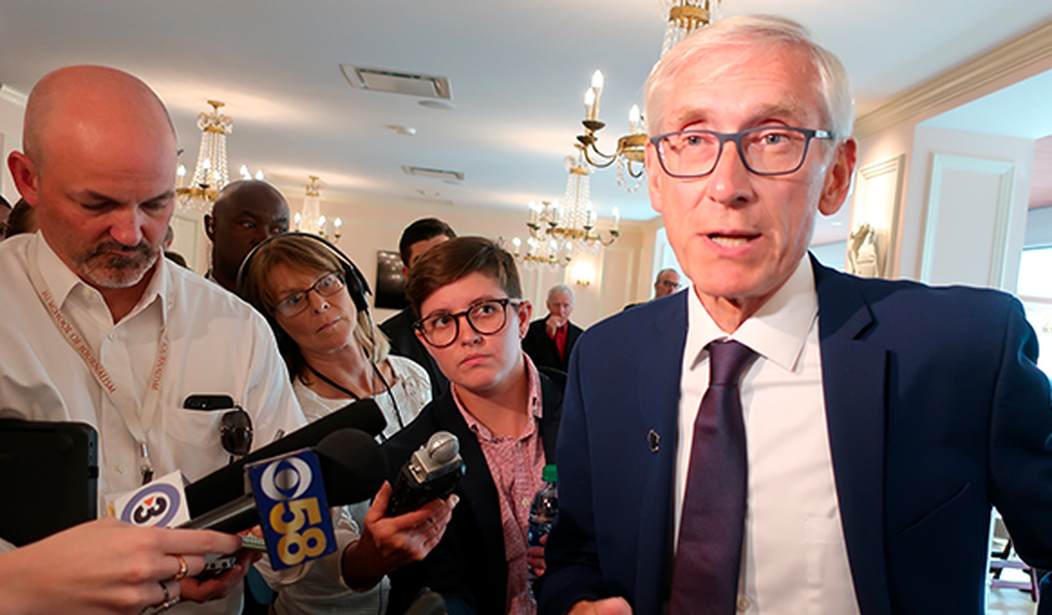MADISON — COVID-19 and Gov. Tony Evers’ emergency orders have pummeled business and Wisconsin’s economy at large.
As earlier dire pandemic projections improve, restive lawmakers and business leaders insist the social-distancing cure for the coronavirus may be deadlier than the disease — at least for Wisconsin’s failing economic health.
Evers’ top jobs administrator, Department of Workforce Development Secretary Caleb Frostman underscored the problem Friday during a Wisconsin Manufacturers & Commerce COVID-19 teleconference update. Frostman laid out the woeful numbers: more than 313,000 total new applications for unemployment benefits between March 15 and April 6, with weekly claims hitting nearly 590,000.
That’s part of historic U.S. jobless numbers that saw 6.6 million Americans filing first-time unemployment claims last week, according to the U.S. Department of Labor. The previous week posted 6.86 million new claims, numbers that shatter the worst the Great Recession dished out.
“This is unprecedented territory,” Frostman said.
No doubt.
WMC and 18 other statewide business associations and 33 local chambers of commerce sent a letter to the governor on Thursday urging his administration to “put together a plan that allows the state’s economy to get moving again.”
“We want to protect lives but we also want to protect livelihoods,” WMC President Kurt Bauer said.
Certainty is what businesses and workers are craving more than ever, Bauer said, noting that the process of restarting the economy should begin on April 24 — the day Evers’ “Safer at Home” order is set to expire.
Recommended
Some lawmakers don’t want to wait that long.
Sen. Duey Stroebel (R-Cedarburg) released a statement Friday asserting that it’s time to re-evaluate Wisconsin’s COVID-19 policies. He notes that Sunday will mark one month since Evers declared a public health emergency based on troubling national models projecting horrifying outbreak rates. The projections have been revised downward.
“The trajectory of cases and deaths in Wisconsin is many times lower than the initial projections upon which Governor Evers and (Department of Health Services) Secretary-Designee (Andrea) Palm based their policies. With COVID-19 patients only taking up about 13.3% of all ICU beds in Wisconsin, with about 29% of ICU space still available, the concern of overwhelming our medical system is not as imminent or inevitable as it may have seemed previously,” Stroebel said.
Evers and his team argue that the case and fatality numbers are lower than projected because their isolation policies are working. But there is a growing body of evidence contradicting that all-or-nothing approach.
As Wisconsin enters the new phase of the COVID-19 response, Stroebel said it’s time to take a fresh look at control measures.
“Every sickness and death is a tragedy, but so are businesses and livelihoods ruined by shelter in place orders. The same rings true for the pronounced negative impacts on civil liberties and quality of life,” Stroebel said. “Besides being counterproductive, indefinite sheltering orders will eventually lead to civil disobedience. We need to begin planning an orderly method of reopening our civil life in stages to refresh our economy and liberties soon.”
Conservative lawmakers warn that the Legislature and the governor will have to make some tough decisions about state spending ahead. Wisconsin, unlike the federal government, can’t simply print money or borrow its way out of what expects to be a huge funding hole ahead.
Republican legislative leaders say they have been working with Democrats to craft legislation that truly meets the needs of the crisis, even as the governor has preemptively vowed to veto any spending cuts to schools or government operations. The GOP-led Legislature is preparing to meet in extraordinary session on Tuesday.
“We’re confident that this plan will make the necessary legislative changes to help Wisconsin deal with the extensive challenges from this public health crisis, while also protecting the integrity of our state budget,” Assembly Speaker Robin Vos (R-Rochester) and Senate Majority Leader Scott Fitzgerald (R-Juneau) said in a joint statement.
Stroebel said he’s not going to tell constituents who are going out of business, getting laid off or watching their retirements melt away “pay higher taxes so that state and local employees can avoid unpaid furloughs, or so that government programs can grow at twice the rate of inflation.”
“We do not yet know what our fiscal challenges will look like in a few months, but these are challenges that will only get worse if we fail to reopen our society in a timely fashion,” Stroebel said.
























Join the conversation as a VIP Member